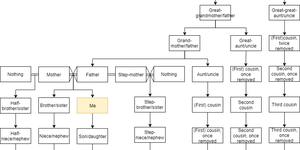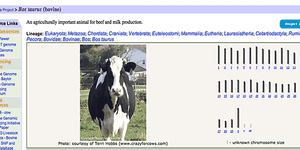Fourth Grade, Genetics & Genomics Science Experiments (29 results)
Fun science experiments to explore everything from kitchen chemistry to DIY mini drones. Easy to set up and perfect for home or school. Browse the collection and see what you want to try first!
What traits are heritable? How different is your DNA from a frog's, a mouse's or even your relative's? Can your genes tell doctors what is the right dose of a medicine for your body? These are the types of questions scientists are answering with genetics and genomics. By studying individual genes as well as genomes, the whole set of DNA belonging to an organism, scientists hope to get a more complete understanding of how our bodies work and develop better disease treatments.
|
Select a resource
Sort by
|
Did you ever wonder about your ancient ancestors? Who they were? Where they came from? In this science project, you will investigate the secrets of your distant past as revealed by your DNA. In order to obtain a sample for DNA analysis, you will scrape a soft swab inside your mouth to collect cheek cells. The cheek cell sample will be sent to a lab for processing, and the results of the analysis will be sent to you. Based on the genetic markers in your DNA, the ancient clan that your…
Read more
This is a project about the "molecular alphabet" of DNA. With just four "letters," it manages to keep track of the plan for an entire person, and keep a complete copy in nearly every cell. This project will help you start learning this new alphabet.
Read more
Imagine that a biologist arrived at your big family reunion and had no idea who were sisters, cousins, aunts, uncles, etc., but tried to sort it out by how all of you look. Just based on how you look, would s/he be able to guess whether the kid standing next to you is your sister or your cousin? The biologist might be able to make some good guesses this way, but by using samples of your family's DNA, s/he could construct your whole family tree. In this project, you'll use Web-based computer…
Read more
The first land animals took their tentative steps out of the ocean and onto solid ground around 365 million years ago. Over millions of years, these early ancestors developed into tetrapods, including amphibians, reptiles, dinosaurs, birds, and mammals. Then, around 50 million years ago, the reverse process occurred: the mammalian ancestor of today's whales returned to the ocean. In this genomics science fair project, you will use mitochondrial protein sequencing to trace the evolution of…
Read more
The DNA in our cells contains our "blueprints," but it's the proteins in our cells that do most of the work. The Human Genome Project has allowed us to start reading the blueprints, but we still don't understand what most of the proteins do. This is a fairly advanced project that explores ways of identifying the function of unknown proteins.
Read more
You have probably seen figures showing how human beings are related to chimpanzees, gorillas, and other primates. In this genomics science fair project, you will use bioinformatics tools to generate your own primate family tree.
Read more
All animals have a genome, but do they all have genome projects? Find out which animals are currently having their genomes sequenced and how much we know already. Whose genomes are already finished? Whose genomes are just getting started? Find out by doing some simple bioinformatics data digging!
Read more
Humans are complex creatures, but do we have the biggest genome? All living things, from humans to worms to bacteria have genomes. In this experiment you will compare the genome sizes of different organisms to find out who has the smallest and the largest genomes. Where will we fit in?
Read more
Native plants are important for both ecological and medicinal reasons. However, most native plants are not very well studied. One way to know more about these plants is to understand which other species of plants they are most closely related to. In this science project you will sequence part of the chloroplast genome from a native plant and use this information to determine its evolutionary relationship to other species of plants. If the plant you chose has not been sequenced before, you can…
Read more
|
Explore Our Science Videos
How to Make Slime
How Strong Is Your Hair? – STEM Activity
Magic Triangles - Fun Math Puzzles with Increasing Difficulty











